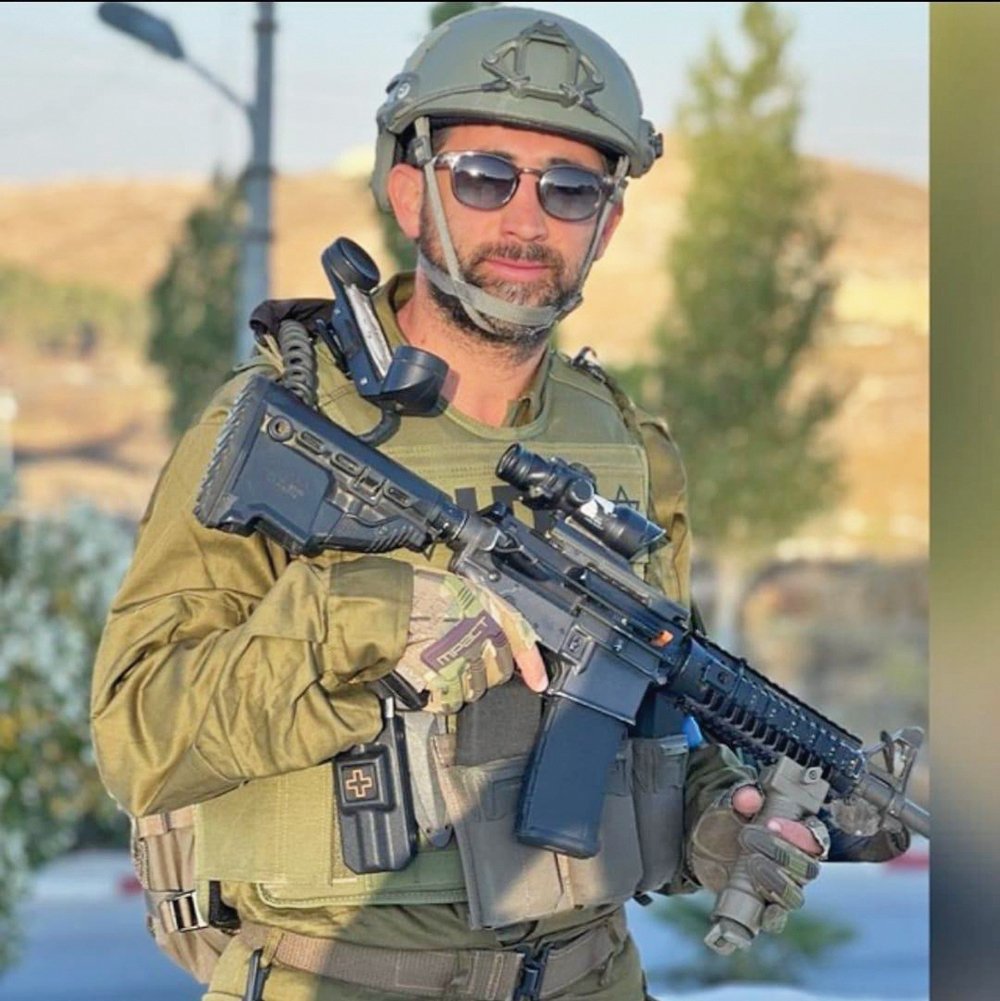
Yedidya Harush, a 35-year-old father of four, was born and raised in the Gaza Strip (at that time known as Gush Katif). In 2005, when he was 17, Israel disengaged from Gaza, and his family had to evacuate—right after they completed building their brand new beautiful house.
Several years later, Harush completed his service in the IDF as a paratrooper. He was about to start law school when his former community members from Gush Katif called him, asking him to help them settle in the Halutza region. The Halutza region was founded in 2005 by a small group of families evacuated from Gush Katif. Halutza includes three different communities: Naveh, Bnei Netzarim and Shlomit, located on Israel’s borders with both Gaza and Egypt. Harush decided to move to the town of Shlomit with his family to help develop the community. He became the liaison of the entire Halutza community to the Jewish National Fund, which aimed to further develop those settlements by building synagogues, schools and medical centers.
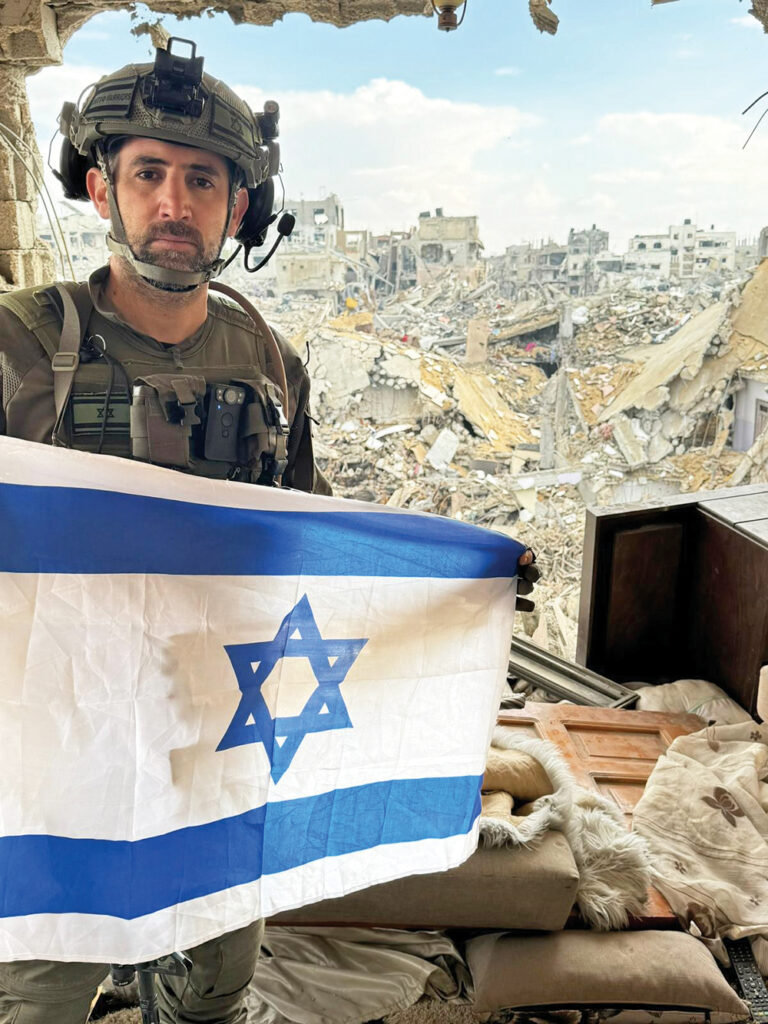
Harush remained a leader in the IDF throughout the years. During Operation Protective Edge in 2014, he actively served to protect Southern Israel from rockets and to secure the borders around Halutza.
On October 7, Harush and his family woke up to red alerts and rockets at 6:30 a.m. Everybody ran to the shelters and nobody was hurt. But a member of their first-response team received a panicked phone call from a friend in Moshav Pri Gan, five minutes away, saying that terrorists were invading Pri Gan. They were trying to enter their homes, and the community had nobody protecting them. Several men from Shlomit’s first-response team rushed to Pri Gan. They immediately found the terrorists invading that community (many more than they expected) and engaged in a two-hour battle with them. The terrorists who weren’t eliminated ran away after two hours, and the entire community of Pri Gan was saved. Not even one person from the moshav was hurt. However, four of Harush’s close friends were killed during the battle, protecting Pri Gan from a massacre.
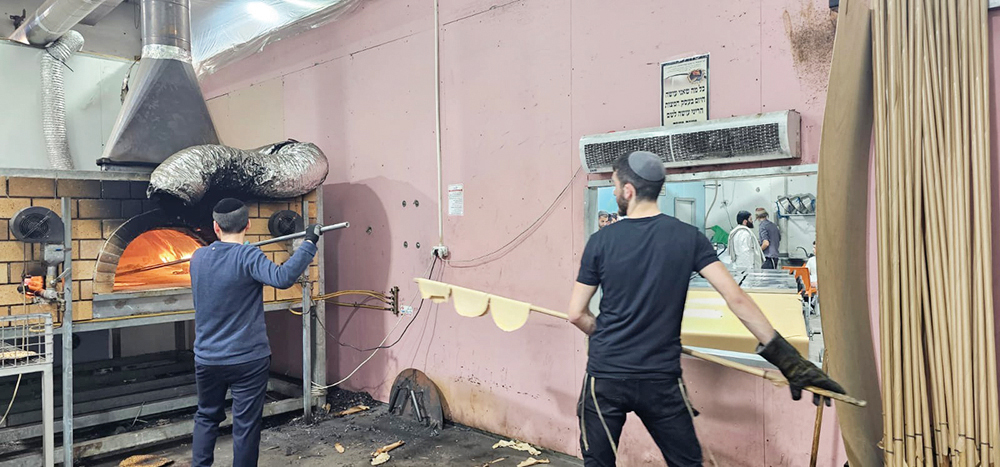
Since the attack, the community of Shlomit was evacuated to a field school in Kfar Ezion, but two weeks ago, they returned to their homes. “It was a heroic decision—a brave decision to come back. But it was the healthiest thing for our people, both for the children and adults,” Harush reflected.
“We want to give courage to those who are hesitant to come back, and I believe if we invest in the area, people will come back. That’s how we win. We go back to our home.”
Recently, with Pesach approaching, Harush has become very concerned about his matzah factory, which he opened two years ago in Shlomit. More than once, he had seen matzah being made in factories where he felt it wasn’t up to code, and the conditions weren’t optimal for strictly kosher matzah. So he went ahead and built a factory that “had no games,” and focused on making strictly kosher, fresh and tasty matzah. He employs 50 people during the matzah baking season.
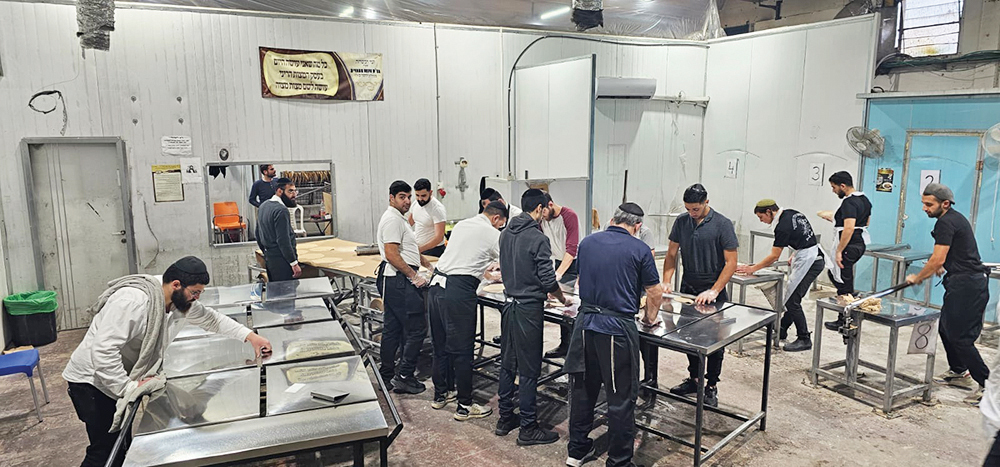
Unfortunately, Harush wasn’t able to sell the matzos in Israel this year. Most matzah deals with the major vendors in Israel close two weeks after Sukkot. But during that time this year, the entire area of Halutza was evacuated, and Harush was serving in Gaza. The vendors waited for Harush for a few weeks, but he was fighting without his phone, unable to communicate. Even if he could have communicated, said Harush, “I didn’t have the head for it.” So, his vendors went elsewhere for their matzah.
Harush feels the pain of the loss of his business now. “People were very happy with our matzah,” he said. “It’s top-quality matzah that is made to be tasty. We had bright plans and business deals with various vendors. Production was very good.”
In February, while Harush was visiting the U.S. for the JNF, Rabbi Daniel Cohen of Stamford, Connecticut, invited him for Shabbat to speak in shul. “I’m always interested, especially in these months, to connect our community to personal stories in Israel,” said Rabbi Cohen.
The rabbi and his congregants were touched by Harush’s talk about the decision he had made several times during his life to return to the South after being evacuated. Rabbi Cohen said: “A person who has a choice to live comfortably and abandon the mission, yet nevertheless chooses to embrace the mission has a very important message for all of us. If you choose to live in Stamford, or New Rochelle or Teaneck, you can’t just live here without being part of the mission. Wherever we are, we have to embrace the mission and advocate for Israel.”
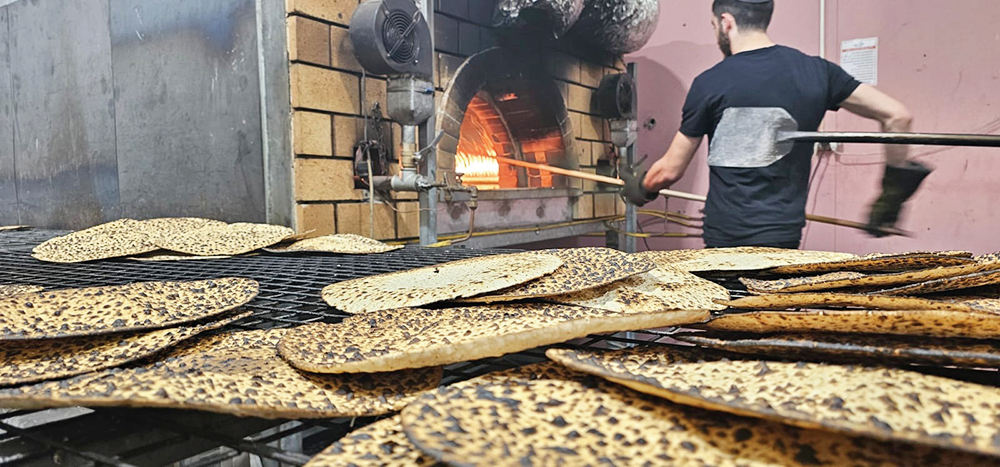
As they walked to shul together, Rabbi Cohen learned that Harush’s matzah factory was in danger of closing down because of the war and dislocation. He came up with the idea of trying to sell Harush’s matzah in America this year.
It was a complicated endeavor, entailing much logistical planning, but in the end, 7,000 pounds of matzah from Harush’s factory was brought to the U.S. on a ship. Stamford’s JCC agreed to store it as it is being sold.
Rabbi Cohen is trying to get the word out to the entire tri-state area that matzah from the Gaza area is being sold locally. Already, people from Brooklyn, New Jersey and the Five Towns have begun placing orders. They are buying either as individuals, or pooling together with friends and even shuls to buy bigger amounts. The orders have to be placed by the beginning of April. Harush’s matzah is baked fresh, and reasonably priced at $22 per pound for groups and $27 per pound for individuals.
“At the end of the day, my main goal for this year is not to make any money. I know there won’t be any profit,” said Harush. “I just want to lower the damage so I can keep this business open. When people buy our matzah, they are getting amazing matzah and also helping us so much. The workers in the bakery can go home and know that they have a place to go back to next season.”
While reflecting on the aftermath of October 7, Harush became emotional. “We cannot forget: We are Am Yisrael. We have been through the Holocaust, we’ve been through pogroms, and we are going to win—not because we have weapons, or airplanes, or intelligence. Those are all great and important. But we are going to win because of our unity. Because people who are my brothers and sisters who live six, seven, and 8,000 miles away, have not slept because they are worried about me and my family and my daughters and my friends that I’ll never see again. This is the war of unity. God wants us united.”
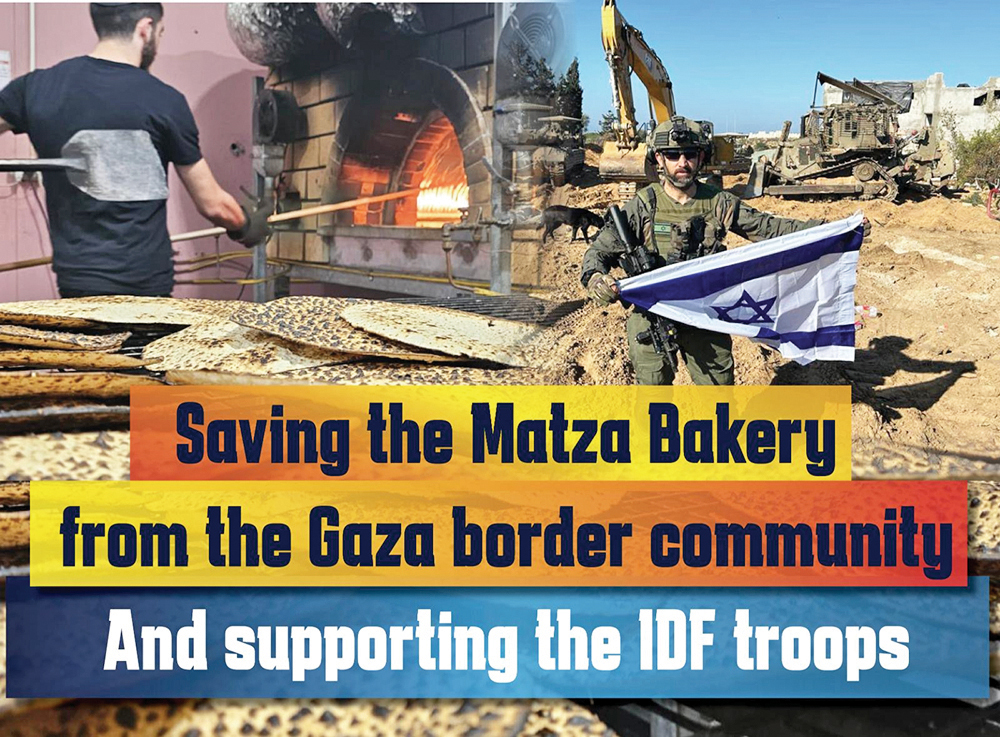
For more information regarding the matza purchasing, please contact: rabbicohen@cas-stamford.org
To order matzah from Yedidya Harush’s factory as a community, please visit:
To order matzah as an individual, please visit:










